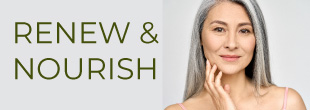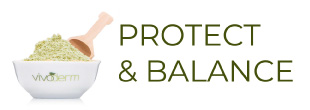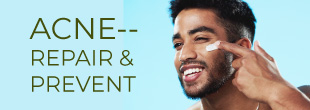Acne Symptoms and Treatments
SYMPTOMS
Acne is often not apparent to an observer. Inflamed pores, however, can cause pain or itching. The most troubling aspect of acne for many people is the scarring that can occur. And, while acne may not be very noticeable, individuals tend to be sensitive about their appearance. Teenagers especially may become concerned about the way other people react to them.
DIAGNOSIS
People with acne are often treated by family doctors. More serious cases are referred to a dermatologist (a specialist in skin disorders) or an endocrinologist (a specialist in hormonal disorders).
Because of its appearance, acne is not difficult to diagnose. A doctor takes a complete medical history, which includes questions about skin, diet, medication use, and other factors associated with risk for acne. He or she conducts a physical examination of the face, upper neck, chest, shoulders, back, and other affected areas. The doctor determines the number and type of blemishes, whether they are inflamed or not, whether they are deep or near the surface of the skin, and whether there is scarring or skin discoloration.
Laboratory tests are not done unless the patient appears to have a hormonal disorder. In that case, blood tests and other tests may be ordered. Most insurance plans cover the cost of diagnosing and treating acne.
ANTI-ACNE DRUGS
Brand Name (Generic Name) and their pssible common side effects:
Accutane (isotretinoin) > Dry skin, dry mouth, conjunctivitis
Benzamycin > Dry and itchy skin
Cleocin T (clindamycin phosphate) Dry skin
Desquam-E (benzoyl peroxide) > Itching, red and peeling skin
Erythromycin topical (A/T/S, erycette, t-stat) > Burning, dry skin, hives, red and peeling skin
Minocin (minocycline hydrochloride) > Headache, hives, diarrhea, peeling skin, vomiting
Retin-A (tretinoin) > Darkening of the skin, blistering, crusted, or puffy skin
Tags: Acne, acne stages, acne treatments, best treatments, lesions, scars, topical




